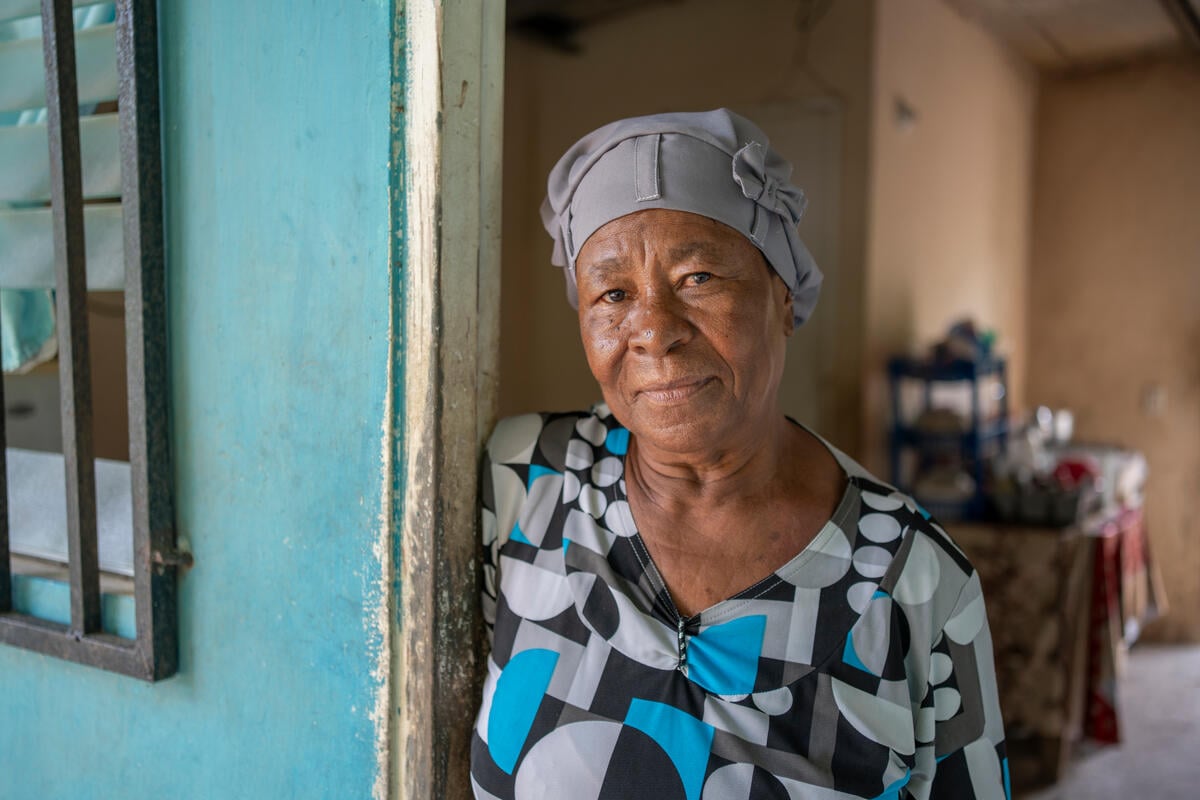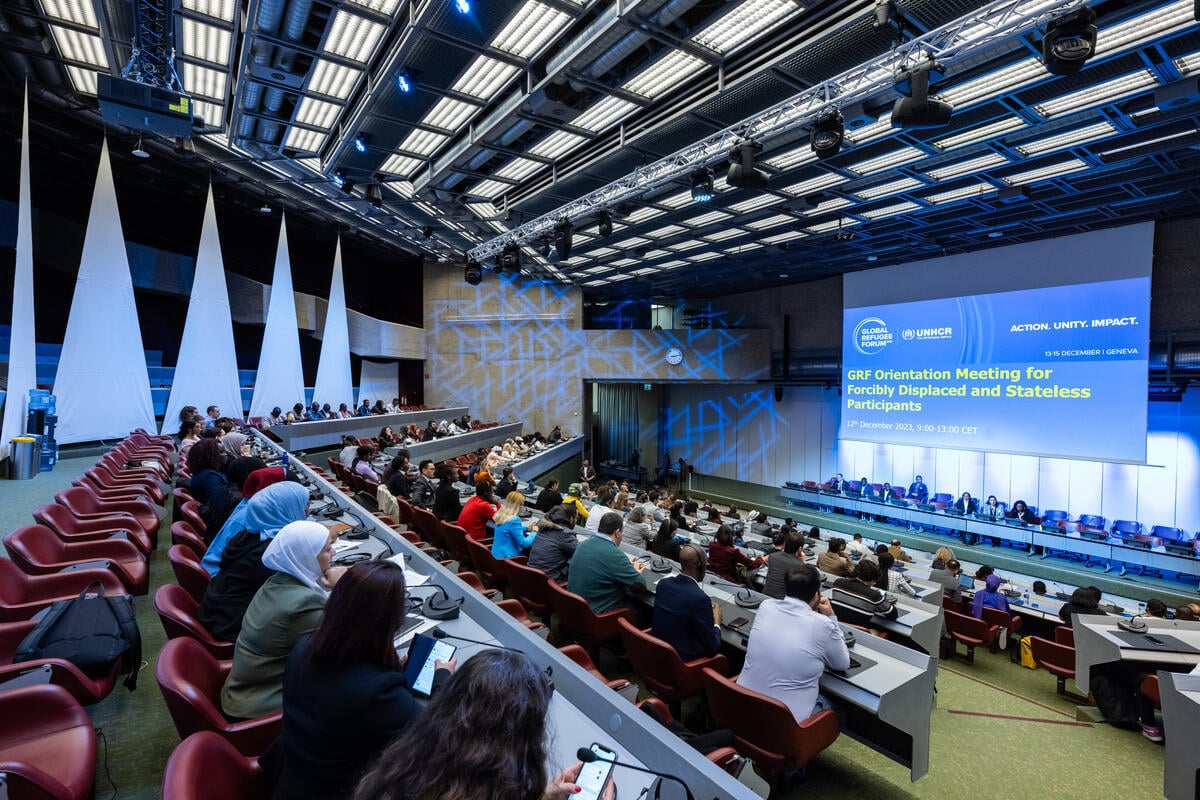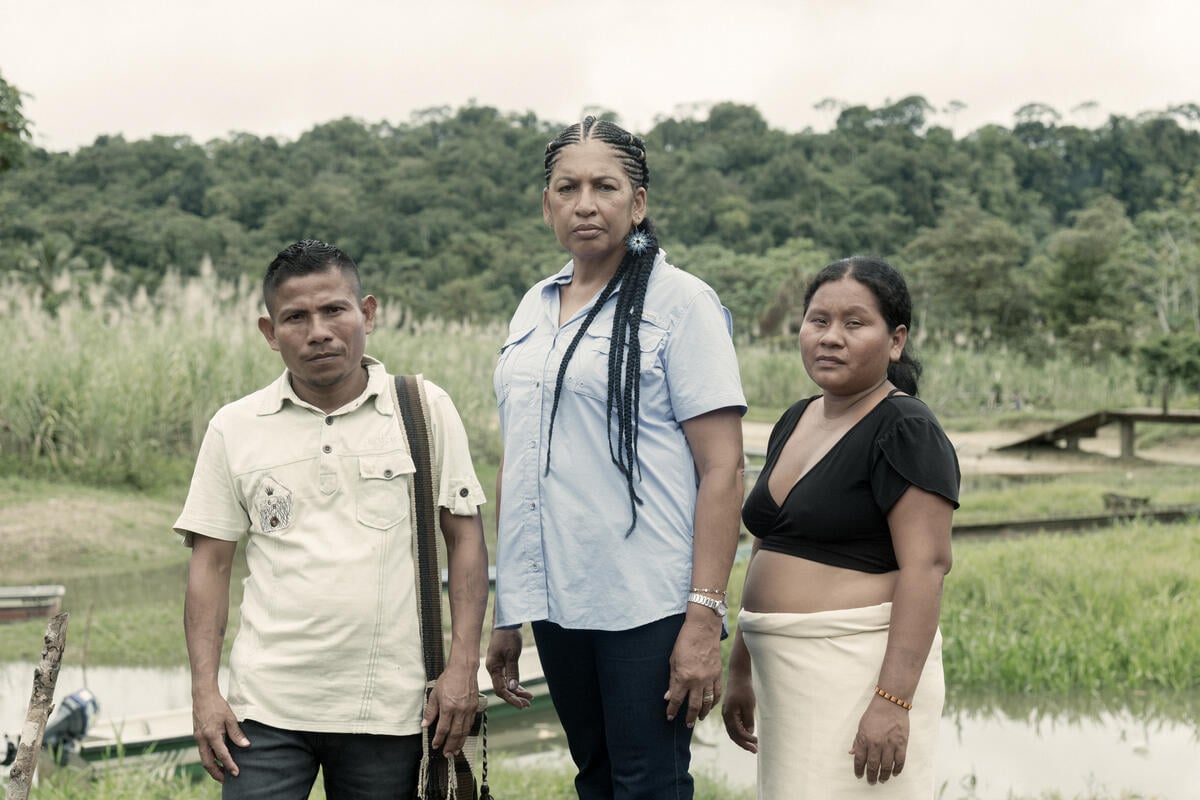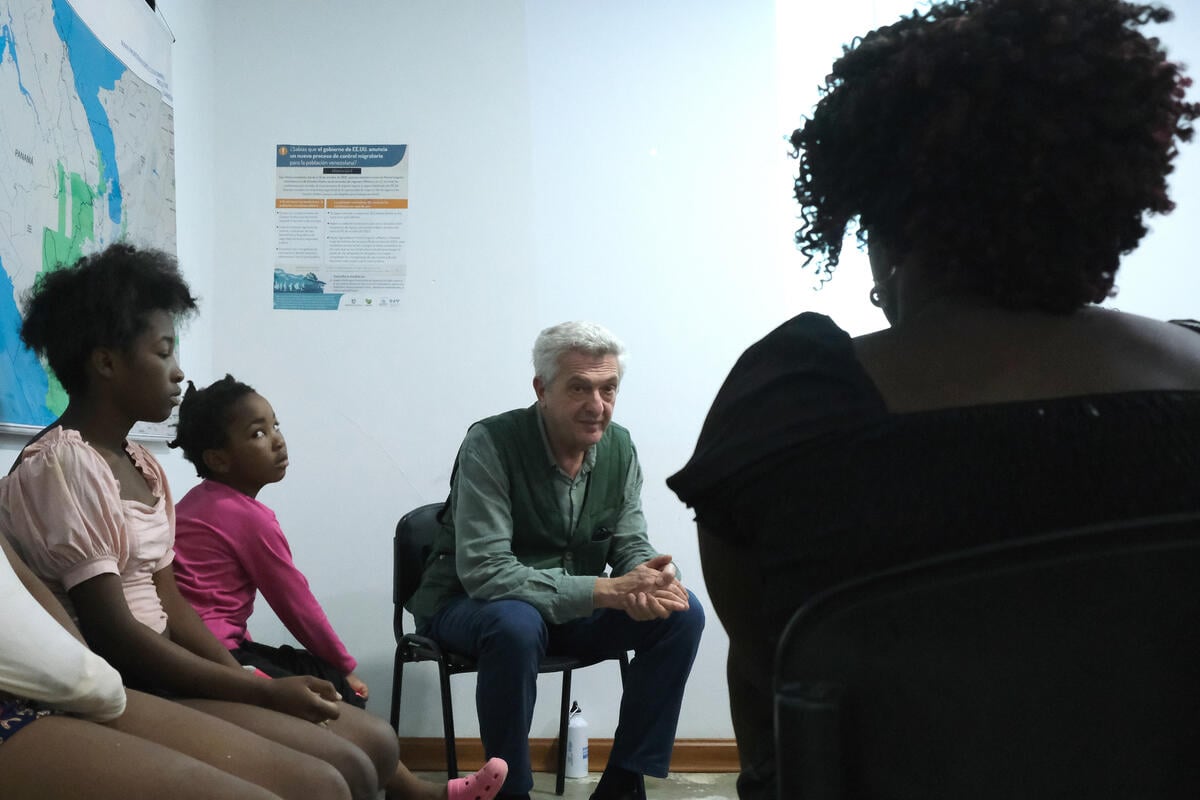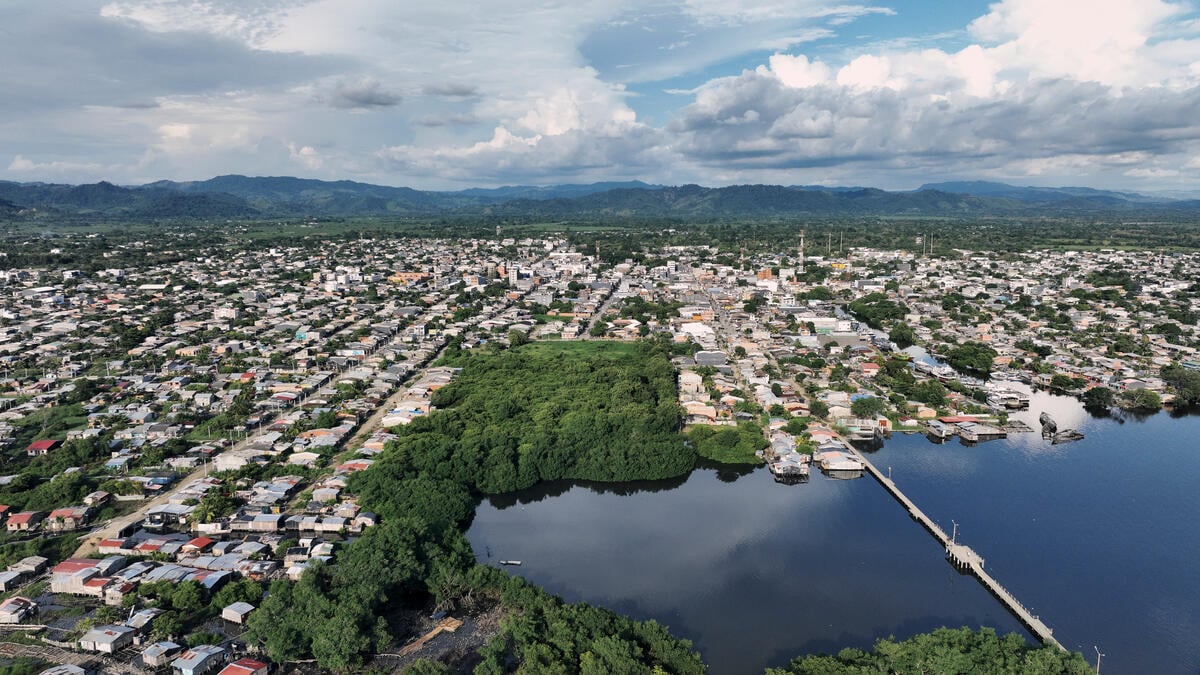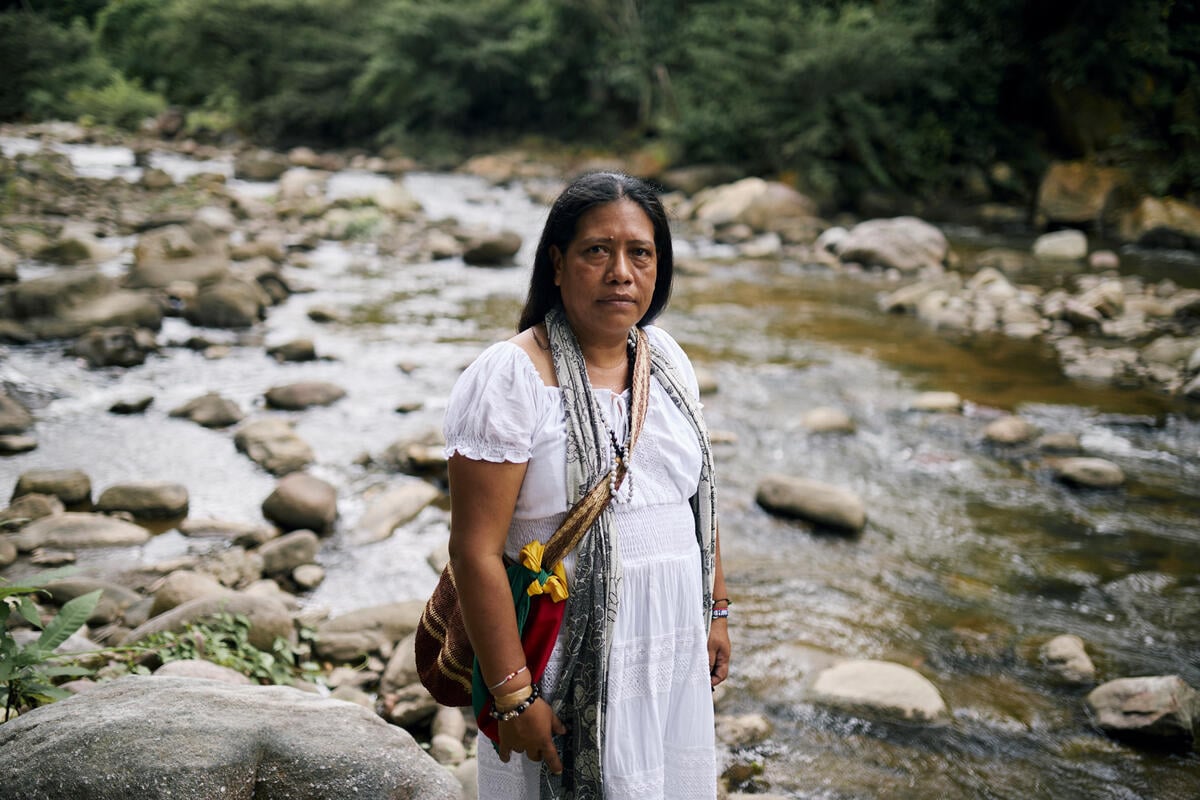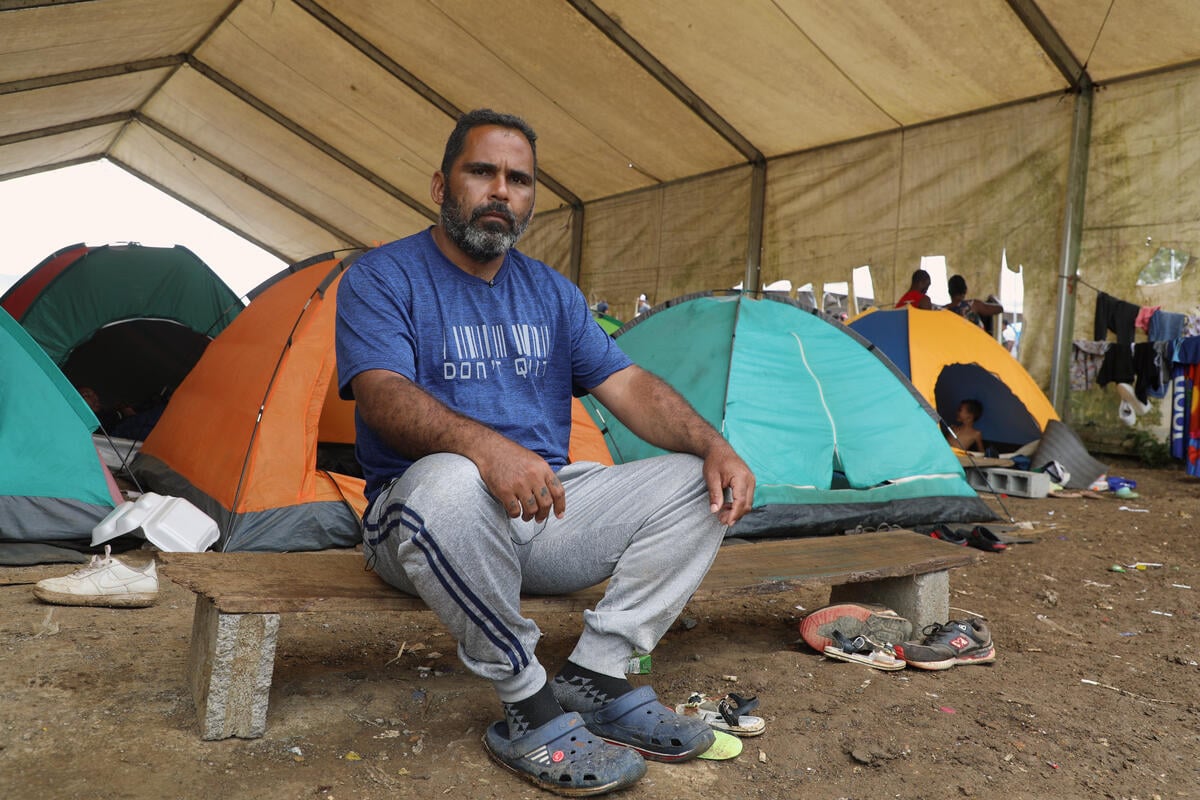Colombia: Indigenous groups badly affected by conflict
Colombia: Indigenous groups badly affected by conflict
The armed conflict in Colombia is badly affecting the country's one million indigenous people and UNHCR is concerned that entire communities could disappear after being forced to flee their traditional territories.
According to a recent report of the National Indigenous Organization of Colombia, ONIC, more than 19,000 indigenous men, women and children were forced to flee their homes and territories since the start of this year. This is largely due to the massive displacement of some 14,000 members of the Nasa indigenous group in western Colombia this summer.
Many of Colombia's more than 80 indigenous groups are also at risk, the report says. In October, hundreds of Qechwa people fled fighting in the southern department of Putumayo, some of them taking refuge in neighbouring Ecuador. The situation in Putumayo remains extremely worrisome, with fresh fighting and more displacement, including of indigenous people, reported this week. In Chocó, in the north-west of the country, hundreds of Embera people are under constant and unrelenting threat of losing their ancestral homeland.
This is the first time that such detailed figures on the impact of the conflict on indigenous people are available, thanks to the nationwide database and reporting system ONIC put into place with the support of UNHCR. The findings highlight the extreme vulnerability of Colombia's indigenous groups to forced displacement.
There are over two million internally displaced persons in Colombia and while forced displacement is always a very difficult experience, it is doubly catastrophic for indigenous communities. Indigenous culture is closely linked to the land and displacement often leads to the total collapse of traditional authority and cultural patterns. Like many other displaced people, indigenous families often end up in big urban centres where they face huge difficulties making a new life in an alien environment.
This tragedy remains largely invisible. Indigenous lands tend to be in remote and strategically important areas where irregular armed groups are heavily present. Crimes and human rights abuses against indigenous people often go unreported and stay unpunished. According to ONIC, more than 1,600 indigenous people were murdered in the past twenty years - 60 per cent of them during the past five years. Some groups like the Wiwa people in the Sierra Nevada de Santa Marta in the north have lost up to 12 members in the first eight months of this year alone out of an estimated population of 1,850.
UNHCR works to protect the rights of displaced people in Colombia and is especially concerned about the fate of indigenous groups. We are working to strengthen indigenous organizations such as ONIC so that they can defend the rights of their people. Our projects in indigenous communities include helping people to obtain official identification documents; human rights and capacity-building training; psychological support; youth projects and training teachers to address the needs of displaced children.


